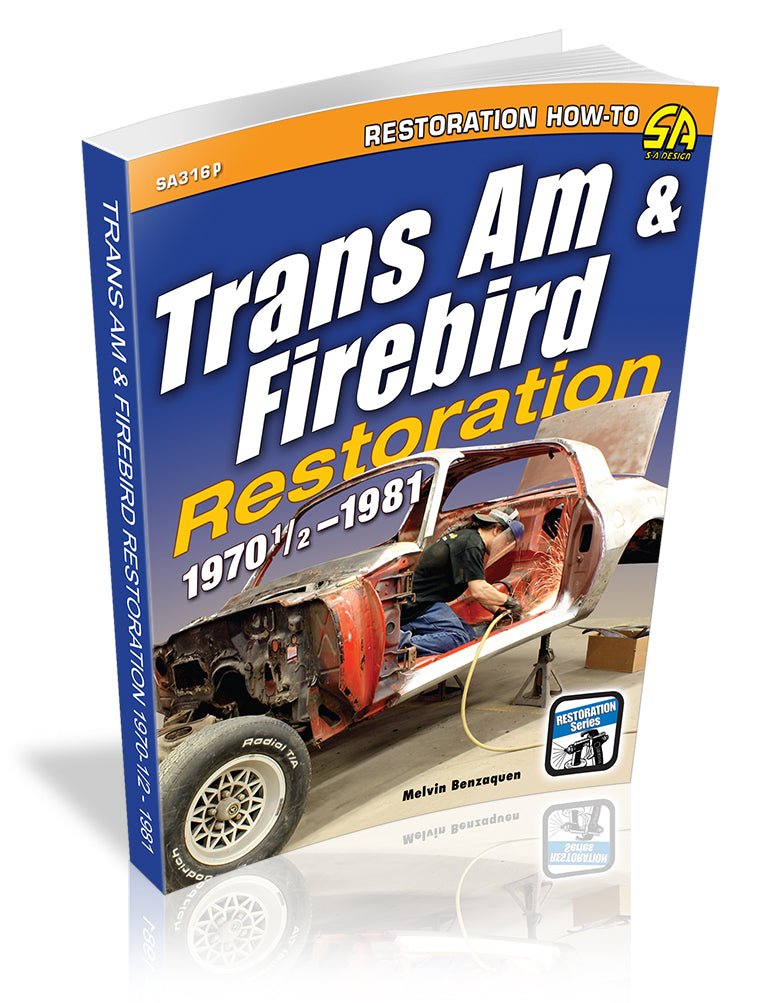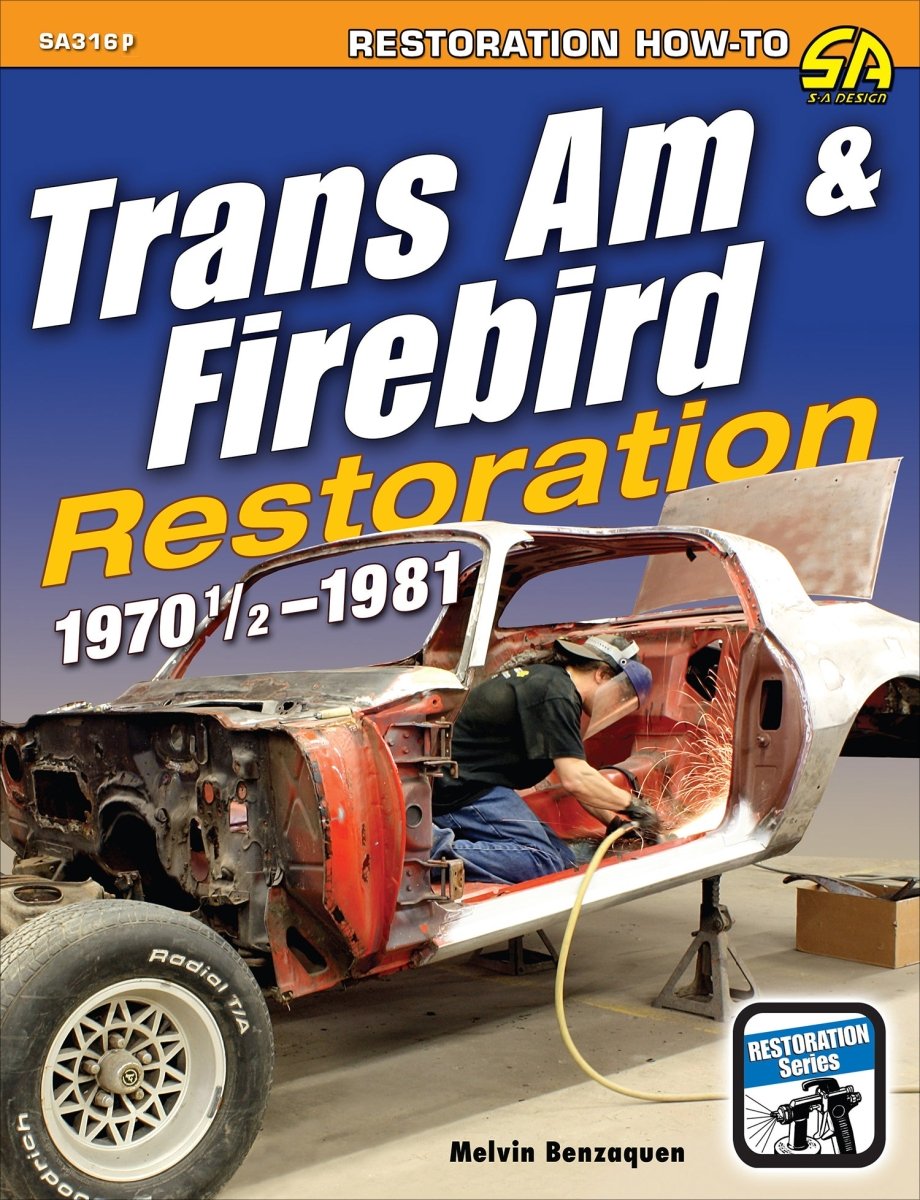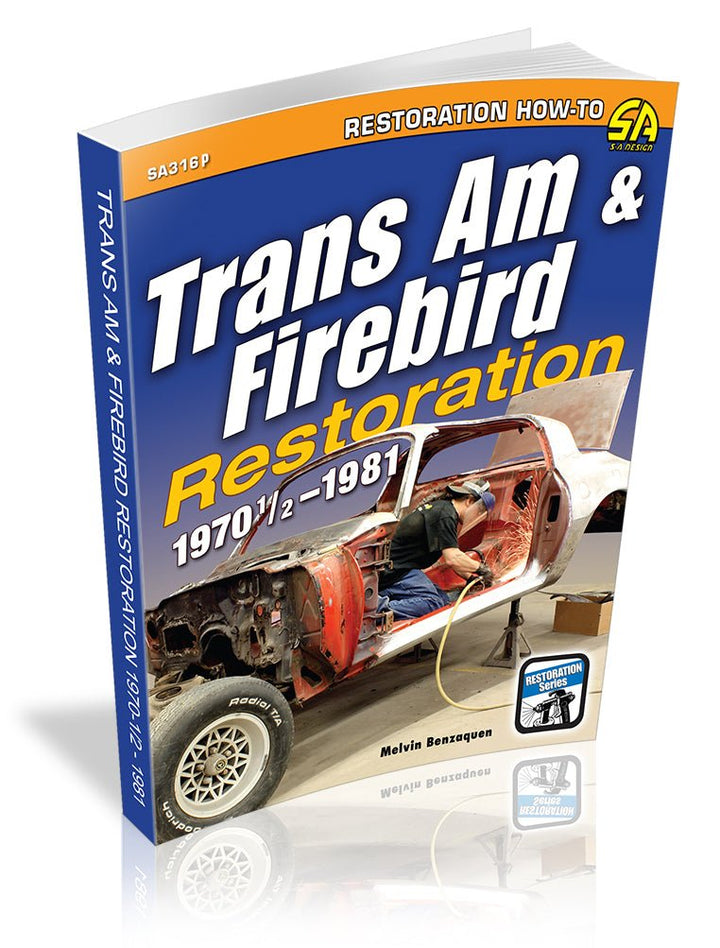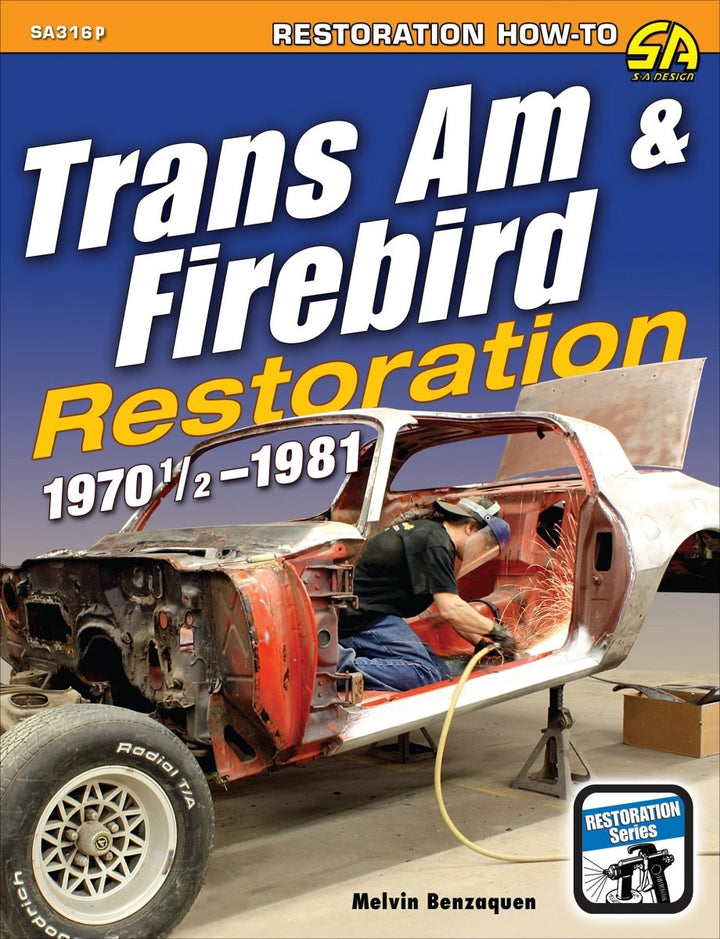The photos in this edition are black and white.
The Trans Am and Firebird were distinctly different than their cousin, the Chevy Camaro, and many Trans Am and Firebird models became stand-out muscle cars of their era. In fact, when the high-performance wars in Detroit subsided in the early 1970s, the Trans Am remained as the sole surviving muscle car. Some second-generation Pontiac F-Body cars are affordable while others are extremely rare and valuable. In particular, the 1970-1974 Pontiac Super Duty Trans Ams, 1970-1973 Firebird Formulas, and 1976 Firebird Limited Editions command high sale prices while the 1970s Trans Am 6.6 "Smokey and the Bandit" cars are still affordable and appreciating in value.
Melvin Benzaquen of Classic Restoration Enterprises has restored dozens of these cars. In this revealing guide, all crucial aspects of restoration are covered, including engine, driveline, interior, trim, electrical system, brakes, steering, and suspension. A special focus is placed on performing common body restoration procedures. Chapters also include VIN decoding, planning, preparation, tools, and painting techniques. Step-by-step photos accompanied by in-depth and detailed captions explain how to perform each stage of the restoration process.
Pontiac Firebird and Trans Am owners are loyal and dedicated to the preservation of these storied high-performance models and therefore demand an accurate and faithful restoration. The magnitude and variety of work in the restoration process can be overwhelming and that's why a complete restoration guide by an acknowledged expert is so important. Now, in this authoritative and comprehensive guide, you have the tools you need to get started on your Trans Am or Firebird restoration.
About the Author
Acknowledgments
Introduction
Chapter 1:
Models and Numbers
Model Search
VIN Tag Decoding
Firebird and Trans Am Values
Chapter 2:
Getting Started
Type of Restoration
At-Home or Professional Shop Restoration
Restoration Process in a Nutshell
Evaluating the Car
Buying Parts
Organize Your Parts
Tools and Equipment
Basic Disassembly
Chapter 3:
Bodywork Part I: Body Panels
Safety
Preparation
Tools for Bodywork
Quarter Panel Patch
Trunk Extension
Rear Body Panel Sectioning
Patch Panel Fabrication
Fenders 55 1970–1973 Front End Removal
Engine Accessories and Related Component Removal 6
Basic Techniques
Sheet-Metal Stripping and Fiberglass Application
Fiberglass Resin Application
Shaping and Sanding
Chapter 4:
Bodywork Part II: Doors, Spoilers, Bumpers and Wheel Flares
Door Panel
Door Glass
Interior Door Panel Installation
Endura Bumper
Rear Spoiler
Wheel Flares
Panel Alignment
Chapter 5:
Painting
Environmental Laws and Safety Considerations
Paint Job Types
Painting at Home
Selecting the Right Shop
Panel Sanding and Cleaning
Masking
Paint Type and System
Prime Time
Color Coat Process
Clear Coat Process
Wet Sanding
Polishing and Hand Glazing
Chapter 6:
Engine Rebuilding
Through the Years
Engine Identification
Rebuilding Considerations
When to Rebuild
Original Appearance Is Key
Procedure Overview
Chapter 7:
Transmission Rebuilding
Manual Transmissions
Automatic Transmissions
Chapter 8:
Drivetrain
Differential
Clutch
Driveshaft
Rear Axles
Chapter 9:
Brakes
Front Disc Brakes
Rear Disc Brakes (1979–1981)
Chapter 10:
Suspension
Inspection
Frame-Off Preparation
Front Suspension
Rear Suspension
Chapter 11:
Electrical System
Electrical Harness
Chapter 12:
Interior
Documentation and Damage Assessment
Interior Carpet
Dash
Chapter 13:
Other Systems and Components
Cooling System
Fuel System
Wheels and Tires
Source Guide





